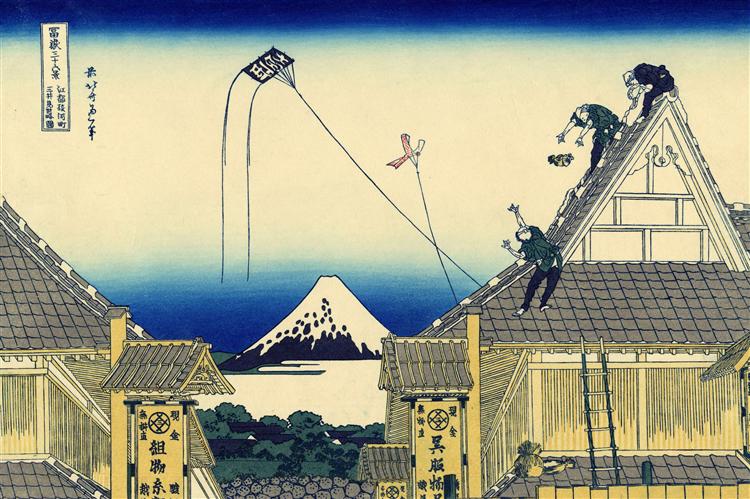Coming to Meet
Jul. 10th, 2019 06:13 am
SInce I just attended the four days of the Blues fest here in Portland, I got to see some of the folks Michael speaks of in full flower. I also had a conversation with Jeanna about which of the two premiere enclaves of hipsterdom (Portland and Brooklyn) were the fontis of the phenomenon. When I woke up this morning, I realized that it was neither. Hipsterdom is a barely disguised replay of the late eighties, early nineties Seattle Scene.
The Flight, Plight, and Crash of the Hipster
Why is it an issue if two women wear the same dress to a party? Is it even possible in our culture for either to not care? If these questions seem sexist, the two women and dress in the scenario can be replaced by two men with hipster clothes/accessories - or any person/fashion combination that does not include a super-human hero type like Lebowski.
With our culture, the answer to the second question is almost certainly no. If, going into the party, one of the two notices the duplication before anyone else does, even if the person noticing is indifferent, they might want to go home and change just to avoid creating an issue with the others - including possibly embarrassing the other individual involved.
We are told that in some ancient cultures an act of hubris warranted extreme guilt because it was an extreme sin to consider oneself unique and/or better than others. If this is the case, it has been the role of capitalism to reverse that equation. If, in ancient times, an act of hubris offended gods who verified guilt by delivering punishment via fate (misfortune), today, a lack of drive to exhibit one’s uniqueness offends capitalism - which offers a complete line of products designed to ensure that one does not wear the same outfit as someone else - who, god forbid, might be more attractive. Perhaps one still needs god, but only in really tough situations.
We are told that in some ancient cultures an act of hubris warranted extreme guilt because it was an extreme sin to consider oneself unique and/or better than others. If this is the case, it has been the role of capitalism to reverse that equation. If, in ancient times, an act of hubris offended gods who verified guilt by delivering punishment via fate (misfortune), today, a lack of drive to exhibit one’s uniqueness offends capitalism - which offers a complete line of products designed to ensure that one does not wear the same outfit as someone else - who, god forbid, might be more attractive. Perhaps one still needs god, but only in really tough situations.
The question as to why there is an issue in the first place can be answered without referring to capitalism, but capitalism works as it does only because the scenario creates an issue. Today we tend to focus on the possibly annoying social gyrations of the young who are open to using all sorts of new products, but it is probably safe to assume that there is nothing in the human today that wasn’t there when the current culture began to form. A consumer culture like ours is built on hubris and continuous growth; thus, one who is annoyed by hubris is bound to find life more and more annoying if they do not take some sort of defensive action. Maybe too bad we cannot say and hope “god help us”.
A wealthy person might be appalled that others have discovered them wearing something that was mass produced. How embarrassing this must be; truly embarrassing, as a sad matter of fact. This person has been parented very well by a consumer culture, but so has the normal Joan and the hipster with whom the concern is simply the demonstration of a lack of uniqueness/individuality. Whether in themselves or the others, this concern is great enough to make all sorts of good or bad things happen with the duplicate scenario.
But the poor soul with the biggest issue of all, is the hipster. Here one’s identity requires a continuous effort to exhibit individuality/uniqueness and, importantly, nothing else. In this case, the effects must be torturous because authenticity is approachable, but never reachable for a human being. If the motive were simply to be different, there would still exist a motive involving concern with others, so this is not good enough.
Those who think that a hipster has things too easy should think again. Living up to the demands of a culture that rewards uniqueness as an end rather than a means, is none too easy, not to mention impossible. Life would be relatively simple and easy if looking and acting unique were a means to being or becoming unique, but this goal is a contradiction in itself that points to what might justifiably be called the empty soul of capitalism. The result is that one cannot be seen with their hair or clothes in the same carefully arranged disarray as another’s.
The complete indifference the hipster hopes to express can only come from complete genuineness - a pure individuality/uniqueness which is negated as a possibility for a human being by the definition of a human being. The hipster has a bigger issue with duplication than others because the hipster is more concerned about what others think and has more invested in what will be lost.
John Gotti said of men: “everybody is a gangster until a real gangster walks in the room”. Maybe this applies to hipsters and any other category of character too. The trouble for the hipster is that it is possible for a person to become a real gangster, but not a true hipster. One cannot become a character who does not care what others think about them. The closest one can get, is to not care what others think about everything else.